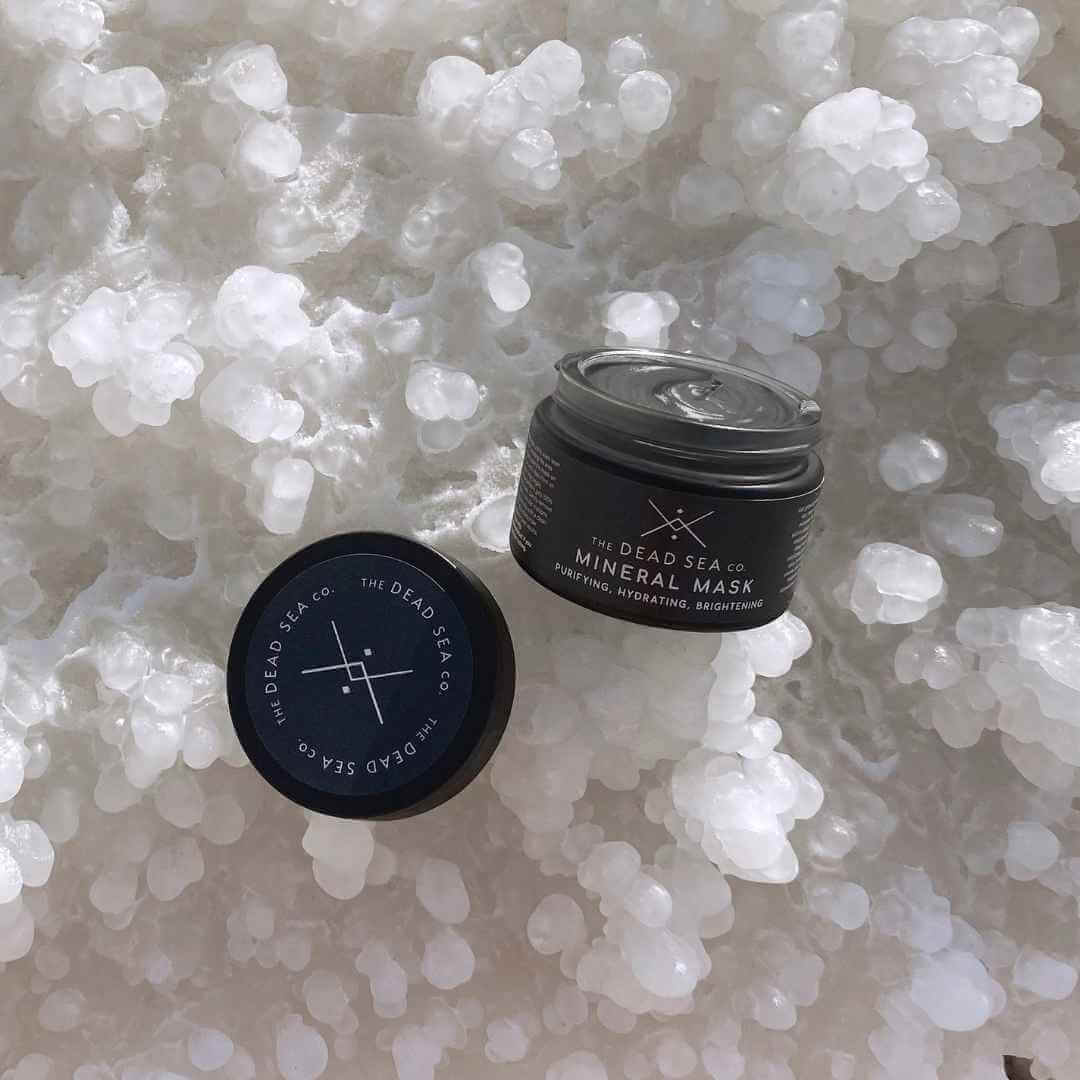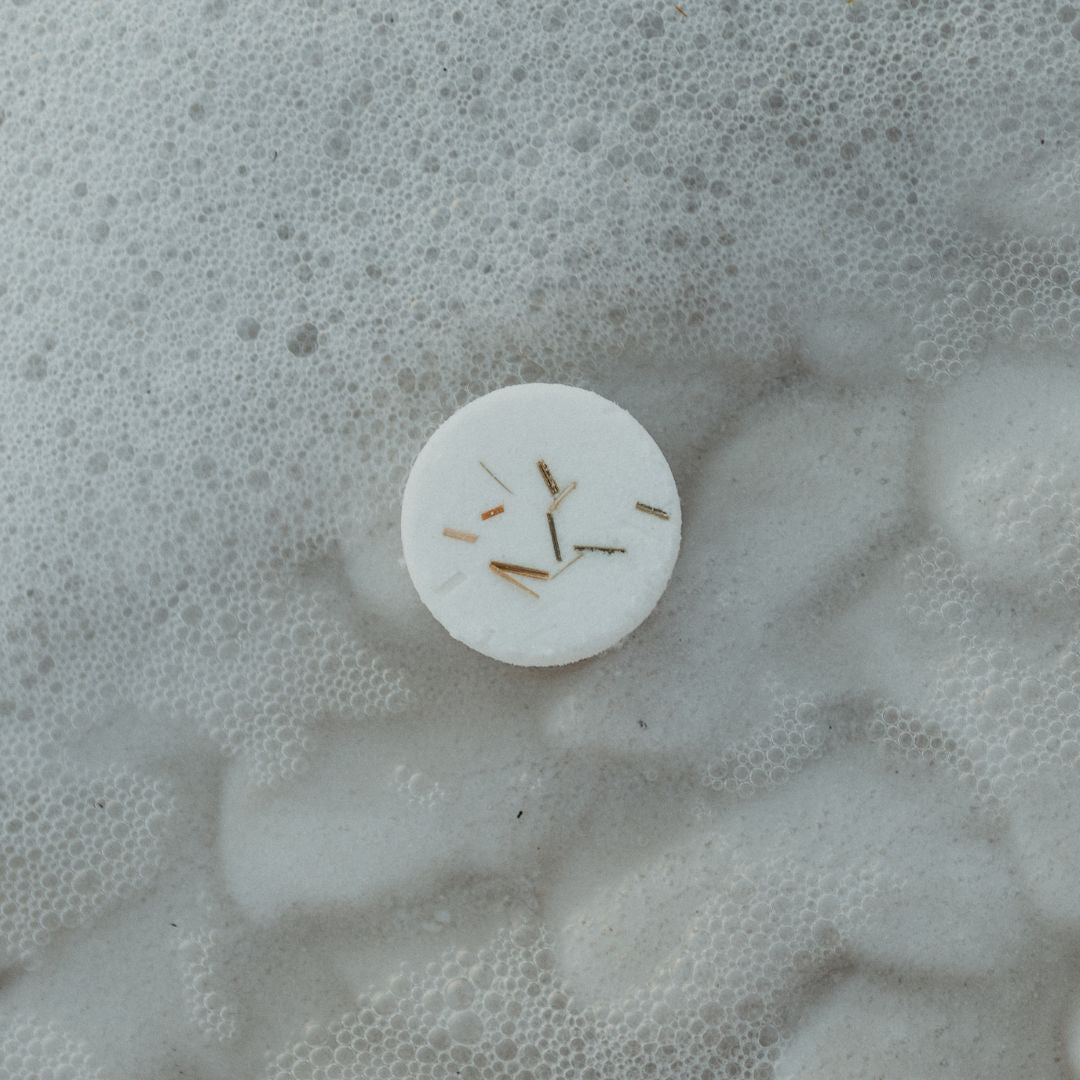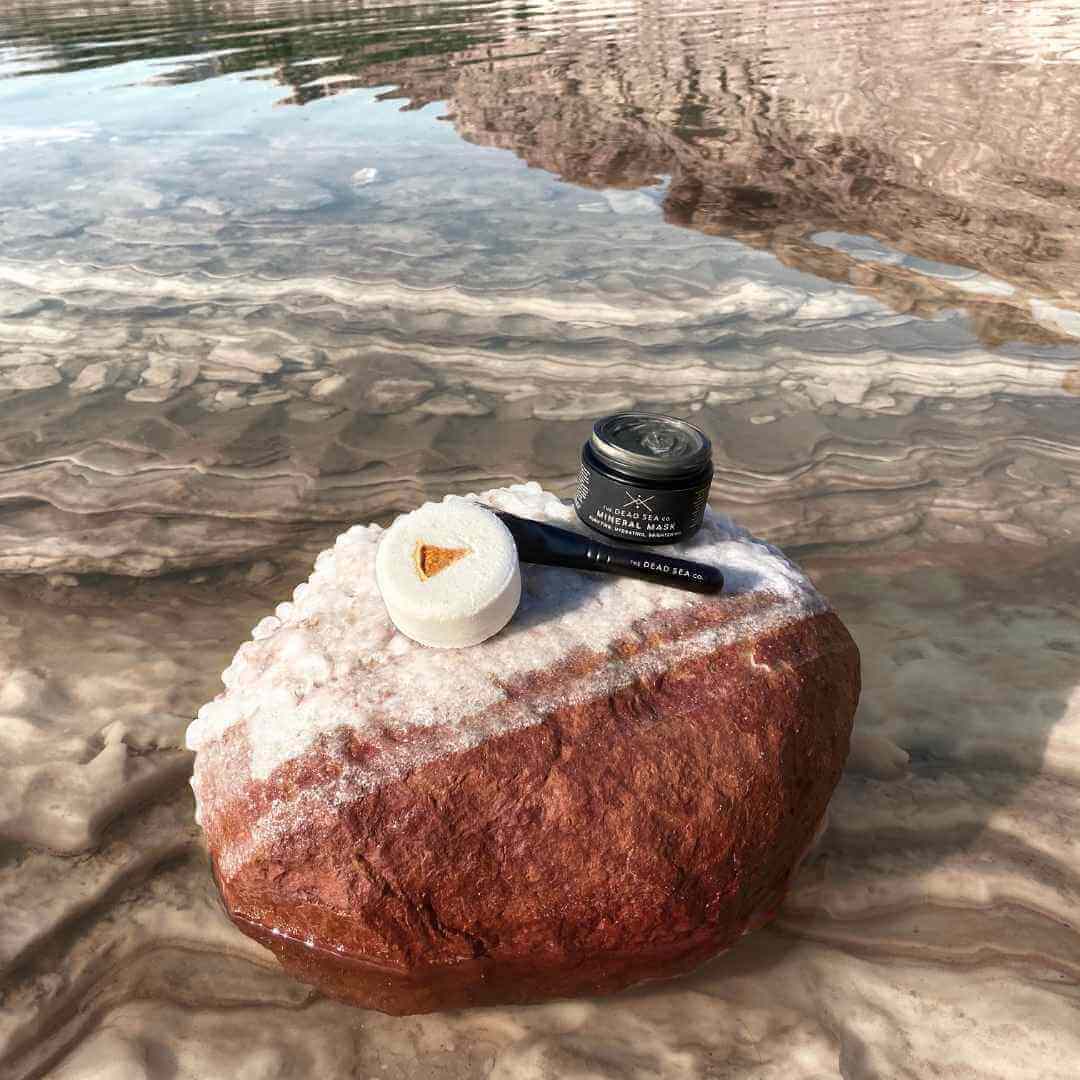DEAD SEA SALT VS EPSOM SALT: WHICH IS BETTER FOR YOUR SKIN AND WELLBEING?
DEAD SEA SALT VS EPSOM SALT: WHICH IS BETTER FOR YOUR SKIN AND WELLBEING?
There’s something timeless about sinking into a warm bath for a long, relaxing soak. The water softens your skin, eases tired muscles, and gives your mind a rare chance to pause and breathe. For centuries, people have added salts to their baths, not just for a touch of luxury, but for the way they make you feel afterwards. Among the favourites are Dead Sea salts and Epsom salts.
Both are known for their mineral richness and soothing properties, but they come from very different places. One is drawn from an ancient salt lake in the Middle East, while the other was first discovered in a spring in Surrey, England. They may look similar when you pour them into your bath, but their effects are distinct. Knowing the difference can help you choose the one that suits your body’s needs best, whether you want deep relaxation, balanced skin, or a sense of calm that lingers long after your soak.
Join & Win: Monthly Wellness Giveaway
Join our community and enter our monthly giveaway for a chance to experience The Dead Sea Co.’s most loved self-care essentials.
Join & Win: Monthly Wellness Giveaway
Join our community and enter our monthly giveaway for a chance to experience The Dead Sea Co.’s most loved self-care essentials.
WHAT SETS DEAD SEA SALTS APART FROM EPSOM SALTS
At first glance, they might look alike — just white crystals that dissolve in warm water — but their makeup and benefits are quite different.
Epsom salt isn’t technically a salt. It’s a naturally occurring mineral compound made up of magnesium and sulphate, both known for helping to ease muscle tension and support recovery. That’s why Epsom salt baths are often a go-to for athletes or anyone in need of physical relaxation.
Dead Sea salt, by contrast, is a genuine mineral salt sourced from one of the most remarkable bodies of water on earth. Unlike ordinary sea salt, which is mostly sodium chloride, Dead Sea salt contains more than 20 minerals including magnesium, calcium, potassium, and zinc. These minerals are known to help the skin feel smoother, calmer, and more hydrated.
So while both types of salt can help you unwind, Dead Sea salts offer something deeper, a ritual that connects skincare, body care, and wellbeing.

HOW EACH SALT WORKS IN YOUR BATH
When you pour Epsom salt into warm water, magnesium is released and absorbed through the skin. Many people find it helps relieve muscle tightness and brings on a state of calm. It’s perfect for recovery after exercise or for unwinding at the end of a long day.
A Dead Sea salt bath provides a more skin-focused experience. Its unique mineral balance doesn’t just soothe; it helps the skin maintain hydration and softness. Regular soaks can leave your skin feeling more supple and even in tone. Some people describe the feeling afterwards as lighter, as though tension has gently lifted from both body and mind.
If you’re looking for a bath ritual that pampers your skin as much as your muscles, Dead Sea salts stand out for their ability to restore balance and leave the skin feeling renewed.
DISCOVER THE MANY WAYS TO ENJOY DEAD SEA AND EPSOM SALTS
Both salts are simple to use and easy to adapt to your routine. The classic method is a long, unhurried soak. Add a generous handful of Dead Sea salt or Epsom salt to warm water, stir until dissolved, and let your body relax.
EPSOM SALT
For sore muscles, Epsom salt is an excellent choice. You can also dissolve a small amount in warm water and use it in a compress for targeted relief.
DEAD SEA SALT
For skincare, Dead Sea salts work beautifully when combined with a small amount of natural oil to create a gentle body scrub. A Dead Sea salt bath once or twice a week can help the skin stay soft, hydrated, and refreshed while creating a calming, sensory experience that lasts well beyond the bath.

At The Dead Sea Co., our Pure Dead Sea Bath Salts, sourced directly from Jordan, retain their natural mineral composition to deliver an authentic, mineral-rich soak. They transform an ordinary bath into a mindful, restorative ritual.
WHICH IS BETTER FOR SKIN AND WELLBEING
When it comes to self-care, both salts have their place. Epsom salts are great for muscle recovery and relaxation, helping the body to unwind and recharge.
But if you want a ritual that also nurtures your skin and brings a sense of calm to your day, Dead Sea salts are the better choice. Their mineral composition helps skin feel smoother and more balanced, while also creating a moment of stillness for the mind.
In short, Epsom salts help you recover. Dead Sea salts help you restore.
By choosing The Dead Sea Co.’s Pure Dead Sea Bath Salts, you’re embracing a tradition that’s been valued for thousands of years — a simple, sustainable self-care ritual that connects skin health, body balance, and mindful relaxation.
FAQs
How are Dead Sea salts different from regular bath salts?
Most standard bath salts are basically just table salt, which means they feel nice in the water but don’t do much more than that. Dead Sea salts are completely different. They naturally carry over 20 minerals, including magnesium and calcium, which is why people notice softer skin and less tightness after soaking.
What changes will I notice in my skin after a Dead Sea salt bath?
The first thing most people comment on is texture. Skin feels smoother and somehow more hydrated without any cream. Some also notice that redness looks calmer and their overall tone feels more even. The effect builds if you make it a weekly habit.




